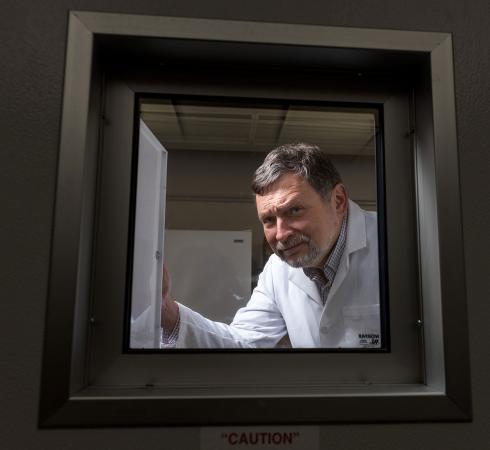In the 116 years since Dr. Aloysius Alzheimer discovered the disease that bears his name, not much has changed. The research path has been vexing, while the need for progress has become urgent — especially as people live longer.
Among people who make it to age 85, some 50 percent will have Alzheimer’s, which afflicts slightly more women than men. Consequently, most everyone knows someone who is suffering or has died from the disease.
Late last year, U.S. research on Alzheimer’s received a significant boost in funding. And recently — aided by new tools — scientists, doctors, and engineers around the world have been making fascinating inroads, including at the Georgia Institute of Technology, which collaborates with Emory University’s highly regarded Alzheimer’s research center.
Some of their insights include: Alzheimer’s may work much like mad cow disease. It also may have aspects of inflammatory disease. And a special light has caused immune cells in the brains of mice to clean up bad proteins that are a hallmark of Alzheimer’s.
Read the whole story and watch the video from Research Horizons here.
Media Contact
Keywords
Latest BME News
Jo honored for his impact on science and mentorship
The department rises to the top in biomedical engineering programs for undergraduate education.
Commercialization program in Coulter BME announces project teams who will receive support to get their research to market.
Courses in the Wallace H. Coulter Department of Biomedical Engineering are being reformatted to incorporate AI and machine learning so students are prepared for a data-driven biotech sector.
Influenced by her mother's journey in engineering, Sriya Surapaneni hopes to inspire other young women in the field.
Coulter BME Professor Earns Tenure, Eyes Future of Innovation in Health and Medicine
The grant will fund the development of cutting-edge technology that could detect colorectal cancer through a simple breath test
The surgical support device landed Coulter BME its 4th consecutive win for the College of Engineering competition.








